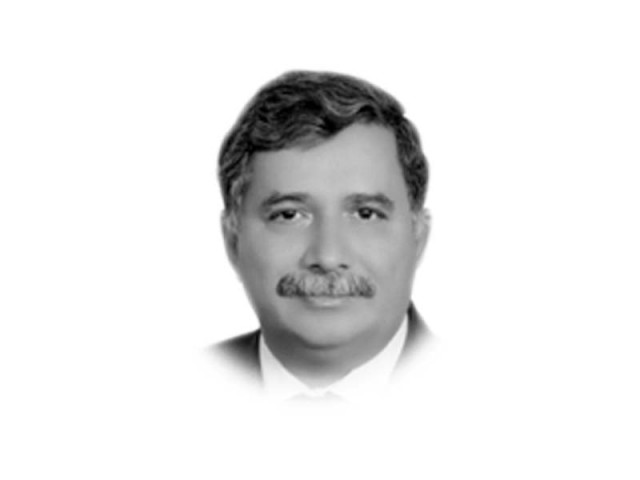PTI’s dreamland
People will start believing in tall claims long-delayed schemes are started without further delay

The majority of people in Pakistan have been suffering from abject poverty, low literacy rate, high infant mortality rate, high maternal mortality ratio, scant availability of clean drinking water, shortage of nutritious food, non-availability of houses, lack of drainage and sewage system, lack of employment and other essentials considered necessary for a better life.
In order to overcome these socio-economic problems, Pakistan has prioritised the Sustainable Development Goals (SDGs), with claims to join the league of upper middle-class countries by 2030. The avowed objectives of SDGs adopted by Pakistan are to end poverty, protect the planet, and ensure that all people enjoy peace by 2030.
Interestingly, the PTI leveraged many tenets of SDGs in its election manifesto, slogans and speeches, generating hopes and aspirations for better governance with a yearning for uptick in employment as well as better health, food, housing, life and property security.
Imran Khan for many was a ray of hope and realiser of people’s dreams — a messiah to heal their wounds of poverty and provider of all good things of life including housing. They believed in his novel intentions of turning the country into a dreamland where happiness would flow and the green passport would garner global respect. The hopes and dreams had reached a pinnacle when Imran Khan was on the cusp of winning power, with a wide-ranging sentiment that foreign investors would flock to Pakistan and the country would transform into an Asian Tiger.
Alas! If wishes were horses, beggars would ride. Therefore, mere intentions, however honest they may be, are not enough unless translated into reality by providing enough financial space.
Governments world over are not assessed on the basis of rhetoric and mere honest opinions. People may initially vote to a leader on his outward posture, charisma, demeanour, and plans. But once elected, his real test starts — the charisma gradually diminishes as issues of governance dominate. The leader is then measured on the key performance indicators and the party’s election manifesto and promises.
Of all the lofty commitments made by PTI, the catchiest is the provision of five million affordable houses within five years. The task is quite gigantic, requiring high levels of commitment, sophisticated skills and mobilisation of resources.
The government in order to grapple with the problem found the solution by forming the Naya Pakistan Housing and Development Authority, although Pakistan Housing Authority (PHA), Pakistan Housing Authority Foundation, Federal Government Employees Housing Foundation (FGEHF) and Capital Development Authority (CDA) were — and are — already functioning. Besides, provincial housing authorities, local governments and development authorities such as Karachi Development Authority (KDA), Lahore Development Authority (LDA), and Peshawar Development Authority (PDA) are also tasked with similar functions.
A cursory glance at all the enactments of the federal government reveals that all the bodies have been assigned with more or less the same functions. It is beyond imagination as to why multiple bodies are functioning, essentially performing the same tasks? Will the constitution of another parallel body with large paraphernalia not be a drain on the already scant resources? Has the office of Secretary working as chairman of the FGEHF, PHA, and PHA Foundation became redundant? Is this new arrangement not against the spirit of neat and clean administration?
No doubt law and organisations are organic in nature; therefore adoptions and changes are required according to the dictates of time. In the case of housing, the need was to bring amendments to the existing laws to make the already functioning organisation more vibrant and not to bring new enactment and raise a new body with the same functions. The creation of a new housing body appears to be a parking place for serving or retried civil servants of BPS 22 or serving or retired lieutenant generals, without any consideration for the internal economy.
Surprisingly, despite the creation of the new body, the task of establishing new housing schemes has been given to PHA Foundation, having the same old personnel — a case of old wine in a new bottle. The FGEHF, PHA and PHA Foundation do not have a bright history. Most of their schemes are either behind schedule or in doldrums. Having collected the hard earned money of the employees by luring them away through colourful brochures, schemes such as Park Road, Islamabad, are nowhere in sight.
Although the foundations are under the fiduciary relationship with the members to promote and protect their interests by timely completion of projects, they get stuck due to poor planning and lack of legal backing. G-10/2 and Green Enclave projects in Islamabad are cases in point. On the other hand, civil servants of BPS 22 at the policy level are quick at approving polices to their own advantage, like getting two plots of their choice. Recently, eight such servants got allotted out-of-turn plots in D-12, Islamabad, a clear case of discrimination and conflict of interest.
The people will start believing in the tall claims of providing affordable houses if long delayed schemes are started without further delay and ongoing schemes are completed within allotted timelines or as an alternative, the stakeholders are adjusted in other sectors on an even and just basis. People are keenly watching the progress on the dreamland offered by the PTI government.
Published in The Express Tribune, October 27th, 2020.
Like Opinion & Editorial on Facebook, follow @ETOpEd on Twitter to receive all updates on all our daily pieces.
















COMMENTS
Comments are moderated and generally will be posted if they are on-topic and not abusive.
For more information, please see our Comments FAQ